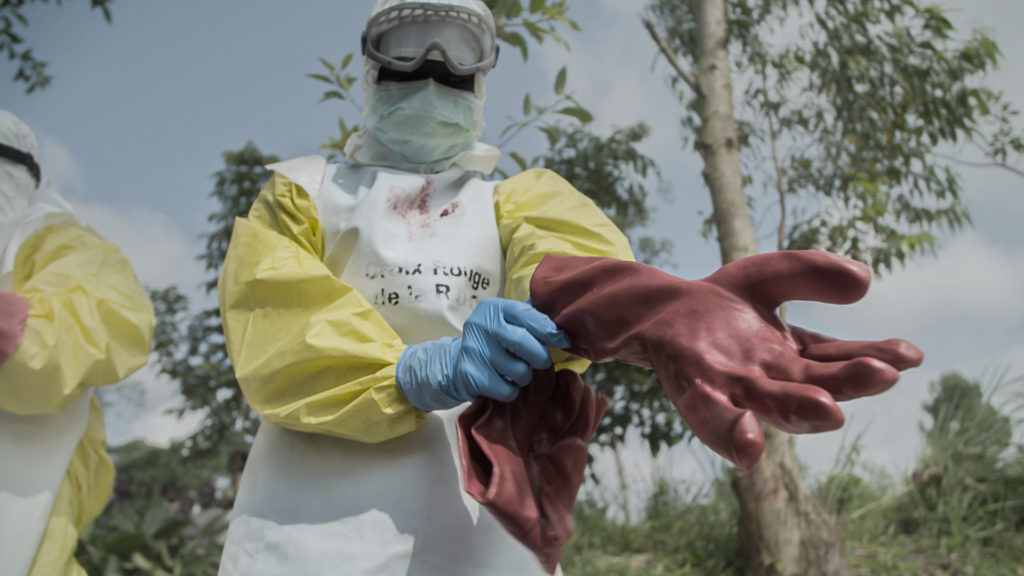In eastern Congo, in a region already devastated by a quarter century of war, an Ebola outbreak has spiraled into the second-largest epidemic on record. The virus has killed more than 2,200 people since August 2018.
Nearly 60 percent of the cases recorded in Congo by the World Health Organization (WHO) have proven deadly.
Jophet Kasere witnessed his wife, son and mother succumb to the sickness. Kasere contracted the virus but survived and developed immunity. He now works as a nurse, treating sick children in North Kivu, an eastern Congo province hit for the first time by Ebola.
Kasere spoke to FRONTLINE for the new documentary Ebola in Congo, for which filmmaker Ben C. Solomon followed three healthcare workers into North Kivu. There, he recorded their struggle to quell the outbreak — in a region defined by a decades-old conflict and deep distrust in both outsiders and domestic government.
Solomon is FRONTLINE’s first-ever filmmaker in residence. He previously worked for The New York Times, on a team that won a Pulitzer Prize for its coverage of the 2014-2016 Ebola crisis in Sierra Leone.
FRONTLINE in 2014 and 2015 also documented the epidemic in West Africa, producing the award-winning films Ebola Outbreak and Outbreak.
Ebola in Congo shows how the current outbreak in central Africa has been compounded by the pervasive belief that Ebola does not exist. Many Congolese are convinced the outbreak is a hoax meant to further destabilize the region. The suspicion has festered into threats and even violence against healthcare workers like Kasere.
“You hear rumors that there will be an attack at the Ebola treatment center,” Kasere said. “The love we have for the children makes us stay. Despite the danger.”
Over the past year, WHO has recorded six deaths and 70 injuries caused by more than 300 Ebola-related attacks on healthcare workers, treatment centers and communities in Congo.
Misunderstandings about Ebola can spread as quickly as the virus itself, said Red Cross worker Bosco Safari. He’s a medical technician for secure burials, handling infected bodies when they are at their most contagious.
“Ebola and being cut with machetes come together here,” Bosco told FRONTLINE. “But if we don’t eradicate this epidemic, everyone here will die.”


